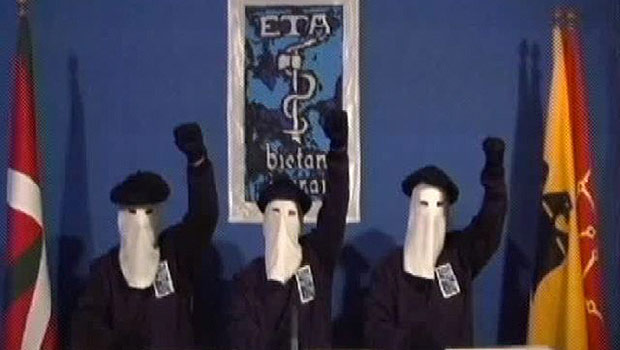Hundreds of arrests and waning support had weakened the guerrilla group, whose fighters killed more than 800 people in a four-decade campaign to claim an independent Basque homeland in northern Spain and southwest France.
“There is no doubt the armed conflict of the last decades has caused a lot of suffering,” two masked ETA members said in an interview published in Basque newspaper GARA.
It was the group’s first public announcement since it declared an end to its armed struggle in October and called on the Spanish and French governments to start talks to resolve the conflict.
“The process must include the return home of all the prisoners. Any other option would just be based on vengeance,” the ETA members said in the interview.
Spanish Socialist Prime Minister Jose Luis Rodriguez Zapatero, who will soon leave office after more than seven years, has not responded formally to the request for talks, wary of ETA due to broken cease-fires in the past.
In the interview, ETA also welcomed as “positive” what it characterised as a change in attitude toward ETA by center-right People’s Party leader Mariano Rajoy, widely tipped to be Spain’s next prime minister after a Nov. 20 parliamentary election.
Rajoy has said that the October ETA announcement was the start of a new non-violent future for the Basque region.
“It’s true that (Rajoy’s) reaction is a break with his negative, aggressive and senseless viewpoint up to now,” GARA quoted the two ETA spokesmen as saying.
The People’s Party has traditionally held a hard line on ETA and is not considered likely to enter direct negotiations with the group over arms and prisoners. Families of victims of ETA car bombings and assassinations strongly oppose such talks.
Polls show that an end to Basque separatist violence is unlikely to sway voters in the election, with unemployment and spending cuts of greater concern.
The release of prisoners is a vital part of the process to end the conflict, ETA said on Friday.










